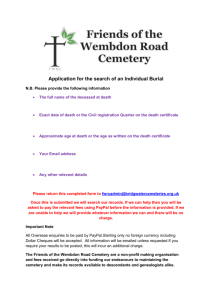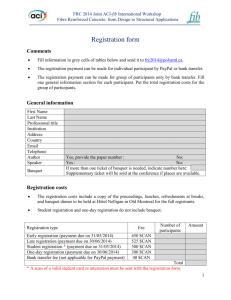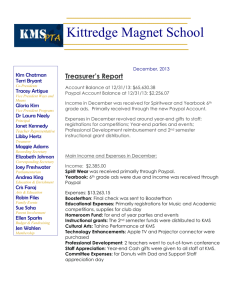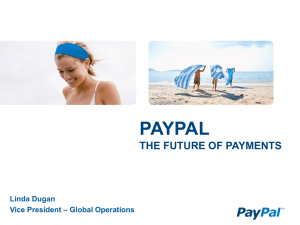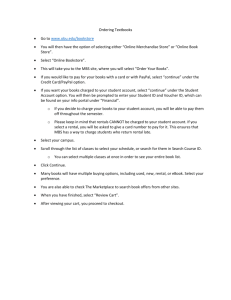Our attorney's answer letter
advertisement
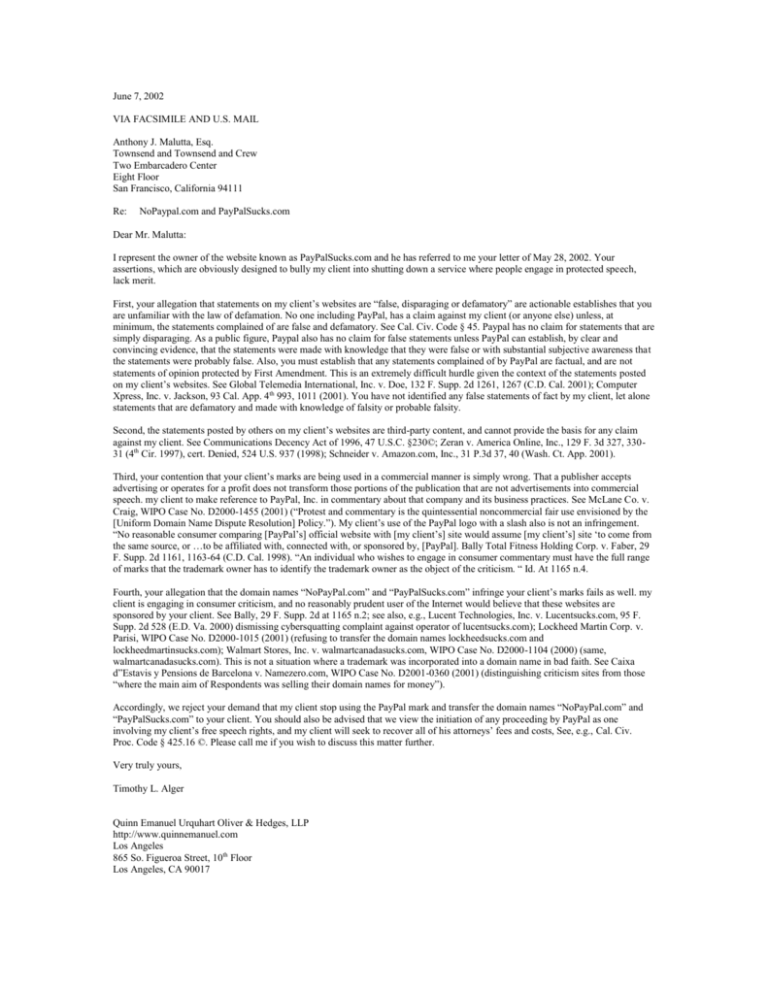
June 7, 2002 VIA FACSIMILE AND U.S. MAIL Anthony J. Malutta, Esq. Townsend and Townsend and Crew Two Embarcadero Center Eight Floor San Francisco, California 94111 Re: NoPaypal.com and PayPalSucks.com Dear Mr. Malutta: I represent the owner of the website known as PayPalSucks.com and he has referred to me your letter of May 28, 2002. Your assertions, which are obviously designed to bully my client into shutting down a service where people engage in protected speech, lack merit. First, your allegation that statements on my client’s websites are “false, disparaging or defamatory” are actionable establishes that you are unfamiliar with the law of defamation. No one including PayPal, has a claim against my client (or anyone else) unless, at minimum, the statements complained of are false and defamatory. See Cal. Civ. Code § 45. Paypal has no claim for statements that are simply disparaging. As a public figure, Paypal also has no claim for false statements unless PayPal can establish, by clear and convincing evidence, that the statements were made with knowledge that they were false or with substantial subjective awareness that the statements were probably false. Also, you must establish that any statements complained of by PayPal are factual, and are not statements of opinion protected by First Amendment. This is an extremely difficult hurdle given the context of the statements posted on my client’s websites. See Global Telemedia International, Inc. v. Doe, 132 F. Supp. 2d 1261, 1267 (C.D. Cal. 2001); Computer Xpress, Inc. v. Jackson, 93 Cal. App. 4th 993, 1011 (2001). You have not identified any false statements of fact by my client, let alone statements that are defamatory and made with knowledge of falsity or probable falsity. Second, the statements posted by others on my client’s websites are third-party content, and cannot provide the basis for any claim against my client. See Communications Decency Act of 1996, 47 U.S.C. §230©; Zeran v. America Online, Inc., 129 F. 3d 327, 33031 (4th Cir. 1997), cert. Denied, 524 U.S. 937 (1998); Schneider v. Amazon.com, Inc., 31 P.3d 37, 40 (Wash. Ct. App. 2001). Third, your contention that your client’s marks are being used in a commercial manner is simply wrong. That a publisher accepts advertising or operates for a profit does not transform those portions of the publication that are not advertisements into commercial speech. my client to make reference to PayPal, Inc. in commentary about that company and its business practices. See McLane Co. v. Craig, WIPO Case No. D2000-1455 (2001) (“Protest and commentary is the quintessential noncommercial fair use envisioned by the [Uniform Domain Name Dispute Resolution] Policy.”). My client’s use of the PayPal logo with a slash also is not an infringement. “No reasonable consumer comparing [PayPal’s] official website with [my client’s] site would assume [my client’s] site ‘to come from the same source, or …to be affiliated with, connected with, or sponsored by, [PayPal]. Bally Total Fitness Holding Corp. v. Faber, 29 F. Supp. 2d 1161, 1163-64 (C.D. Cal. 1998). “An individual who wishes to engage in consumer commentary must have the full range of marks that the trademark owner has to identify the trademark owner as the object of the criticism. “ Id. At 1165 n.4. Fourth, your allegation that the domain names “NoPayPal.com” and “PayPalSucks.com” infringe your client’s marks fails as well. my client is engaging in consumer criticism, and no reasonably prudent user of the Internet would believe that these websites are sponsored by your client. See Bally, 29 F. Supp. 2d at 1165 n.2; see also, e.g., Lucent Technologies, Inc. v. Lucentsucks.com, 95 F. Supp. 2d 528 (E.D. Va. 2000) dismissing cybersquatting complaint against operator of lucentsucks.com); Lockheed Martin Corp. v. Parisi, WIPO Case No. D2000-1015 (2001) (refusing to transfer the domain names lockheedsucks.com and lockheedmartinsucks.com); Walmart Stores, Inc. v. walmartcanadasucks.com, WIPO Case No. D2000-1104 (2000) (same, walmartcanadasucks.com). This is not a situation where a trademark was incorporated into a domain name in bad faith. See Caixa d”Estavis y Pensions de Barcelona v. Namezero.com, WIPO Case No. D2001-0360 (2001) (distinguishing criticism sites from those “where the main aim of Respondents was selling their domain names for money”). Accordingly, we reject your demand that my client stop using the PayPal mark and transfer the domain names “NoPayPal.com” and “PayPalSucks.com” to your client. You should also be advised that we view the initiation of any proceeding by PayPal as one involving my client’s free speech rights, and my client will seek to recover all of his attorneys’ fees and costs, See, e.g., Cal. Civ. Proc. Code § 425.16 ©. Please call me if you wish to discuss this matter further. Very truly yours, Timothy L. Alger Quinn Emanuel Urquhart Oliver & Hedges, LLP http://www.quinnemanuel.com Los Angeles 865 So. Figueroa Street, 10th Floor Los Angeles, CA 90017
